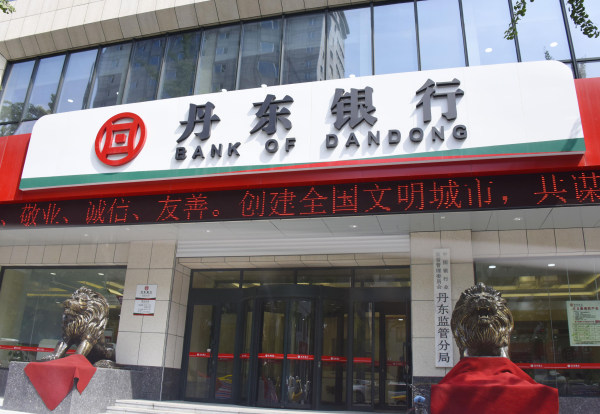Developments in 2017 to learn more go here.
On March 7, 2017, CBO issued estimates that extraordinary measures could suffice to meet federal obligations until sometime in the fall of 2017.141 Such estimates are subject to substantial uncertainty due to changes in economic conditions, federal revenue flows, changes in the amounts and timing of federal payments, and other factors. On March 8, 2017, Treasury Secretary Mnuchin notified Congress that he would invoke authorities to use extraordinary measures after March 15, 2017, to ensure continued payment of federal obligations.142 On March 16, 2017, Secretary Mnuchin notified congressional leaders that he had indeed exercised those authorities.143 The debt limit on that date was reset at $19,809 billion.144
In testimony before Congress on May 24, 2017, Administration officials urged Congress to raise the debt limit before its summer recess.145 Office of Management and Budget (OMB) Director Mick Mulvaney stated that the federal receipts were coming in more slowly than projected, which could imply that Treasury’s capacity to meet federal obligations could be exhausted sooner than previously projected.146 A Goldman Sachs analysis found, however, that some major categories of tax receipts had shown stronger growth.147
On June 28, 2017, Treasury Secretary Mnuchin sent a letter to Congress stating that extraordinary measures would be used until September 29, 2017.148 Secretary Mnuchin’s letter did not state that Treasury’s cash reserves or borrowing capacity would be exhausted on that date, but he did describe the need for legislative action by that date as “critical.” Others have estimated that the U.S. Treasury would likely be able to meet federal obligations until sometime in early October 2017.149 Treasury cash balances and borrowing capacity in mid-September, however, are projected to fall well below levels the U.S. Treasury has considered prudent to maintain operations in the face of significant adverse events.150
The Constitution grants Congress the power to borrow money on the credit of the United States—one part of its power of the purse—and thus mandates that Congress exercise control over federal debt. Control of debt policy has at times provided Congress with a means of raising concerns regarding fiscal policies. Debates over federal fiscal policy have been especially animated in recent years. The accumulation of federal debt accelerated in the wake of the 2007-2008 financial crisis and subsequent recession. Rising debt levels, along with continued differences in views of fiscal policy, led to a series of contentious debt limit episodes in recent years.
The 2011 debt limit episode was resolved on August 2, 2011, when President Obama signed the Budget Control Act of 2011 (BCA; S. 365; P.L. 112-25). The BCA included provisions aimed at deficit reduction and allowing the debt limit to rise in three stages, the latter two subject to congressional disapproval. Once the BCA was enacted, a presidential certification triggered a $400 billion increase. A second certification led to a $500 billion increase on September 22, 2011, and a third, $1,200 billion increase took place on January 28, 2012.
Federal debt again reached its limit on December 31, 2012. Extraordinary measures were again used to allow payment of government obligations until February 4, 2013, when H.R. 325, which suspended the debt limit until May 19, 2013, was signed into law (P.L. 113-3). On that date, extraordinary measures were reset, which would have lasted until October 17, 2013, according to Treasury estimates issued in late September 2013. On October 16, 2013, enactment of a continuing resolution (H.R. 2775; P.L. 113-46) resolved a funding lapse and suspended the debt limit through February 7, 2014. On February 15, 2014, a measure to suspend the debt limit (S. 540; P.L. 113-83) through March 15, 2015, was enacted. Once that debt limit suspension lapsed after March 15, 2015, the limit was reset at $18.1 trillion. On October 15, 2015, Treasury Secretary Jacob Lew stated that extraordinary measures would be exhausted no later than November 3, 2015, although a relatively small cash reserve would be on hand. Lower tax receipts and higher trust fund inflows, however, reduced Treasury’s headroom more than had been expected. The Bipartisan Budget Act of 2015 (BBA2015; H.R. 1314; P.L. 114-74), which relaxed certain discretionary spending limits, suspended the debt limit through March 15, 2017.
On March 16, 2017, the debt limit was reset at $19,809 billion and Treasury Secretary Steven Mnuchin notified Congress that he had invoked authorities to use extraordinary measures. CBO estimated that those measures could meet federal obligations until sometime in the fall of 2017, although in May 2017, Administration officials said slower than expected growth in revenues could require earlier action. Some independent analysts still expect that the U.S. Treasury could meet federal obligations until sometime in early October 2017. On June 28, 2017, Treasury Secretary Mnuchin notified Congress that extraordinary measures would be used until September 29, 2017, and urged action before that date.
Total federal debt increases when the government sells debt to the public to finance budget deficits, which adds to debt held by the public, or when the federal government issues debt to certain government accounts, such as the Social Security, Medicare, and Transportation trust funds, in exchange for their reported surpluses—which adds to debt held by government accounts; or when new federal loans outpace loan repayments. The sum of debt held by the public and debt held by government accounts is the total federal debt. Surpluses reduce debt held by the public, while deficits raise it. This report will be updated as events warrant.








